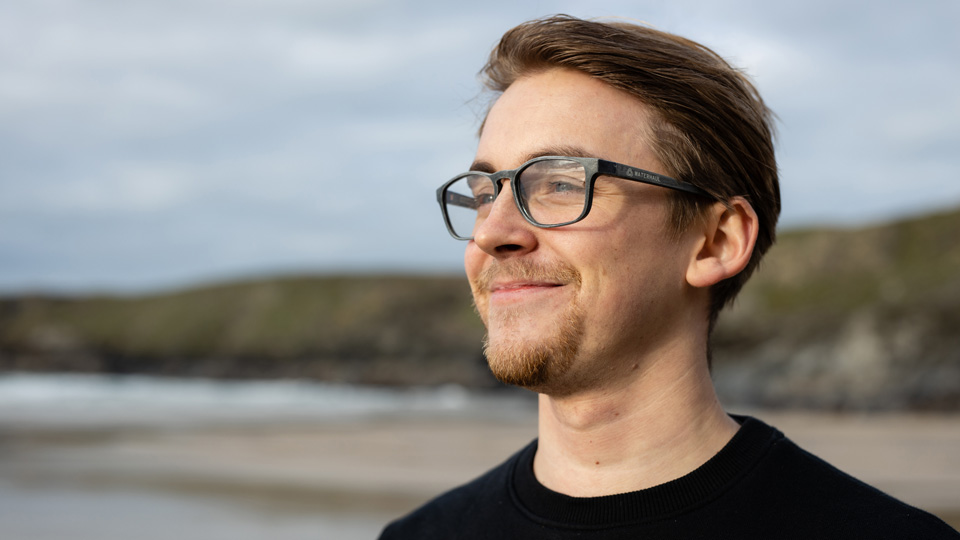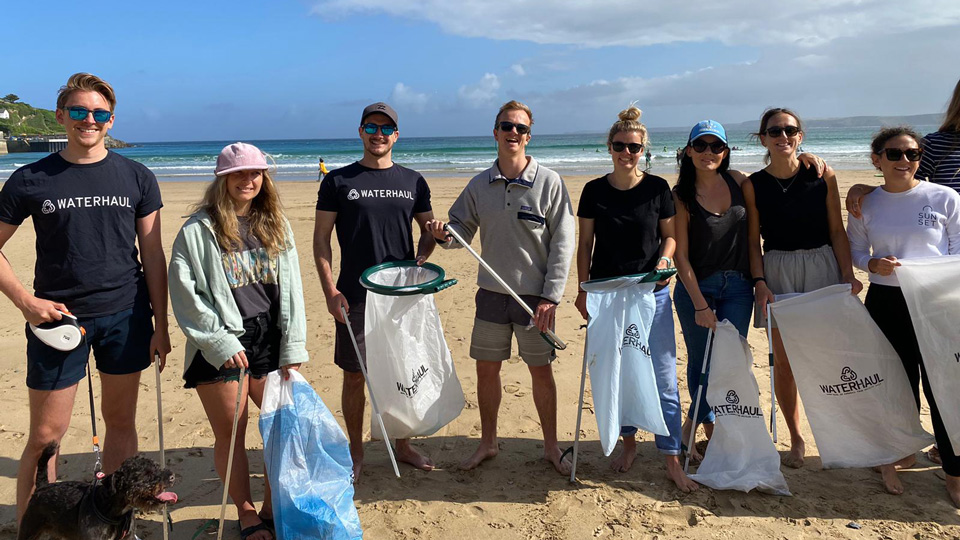- OT
- Industry
- Eyewear and lenses
- Frames with a positive impact
Behind the brand
Frames with a positive impact
Kieran Hill, head of B2B sales for Waterhaul, on the growth of the start-up, making frames from fishing net material, and how environmental awareness has increased

08 August 2022
Who are the team behind Waterhaul? What is the company’s ethos?
In 2018 Harry Dennis and Gavin Parker founded Waterhaul, a company focused on our impact on the environment. They are both marine biologists and avid surfers from the coast of Cornwall and they were encountering the most harmful and abundant form of ocean plastic, which is fishing nets and discarded gear. They wanted to revalue that waste material into a resource, so they launched the eyewear brand which has now grown to about 12 different stock keeping units (SKU).
As part of our overall impact and mission, we've also developed litter picking equipment using the same material, so people can go out and have an individual positive impact within their own environments. We’ve really focused on not just repurposing this material, but creating really high-quality functional products from it as well.
What makes Waterhaul eyewear unique for practices?
We use 100% fishing net material and that's really unique in itself. But we have the story behind us too: we produce litter picking equipment and we’re hands-on collecting the nets ourselves, so it's such a great story for practices to convey to their own customers. Within the optical world, it's that one-on-one relationship between the optician and their customer that is so important.

What was your most recent launch?
The ‘Sennen’ are our newest frames. They've been specifically made for the ophthalmic market. The frames are made from recycled monofilament gill netting, which we collect from a Newlyn harbour in Cornwall. It's got spring hinges, which we've incorporated for this specific market. The slate colour aims to link back to the Cornish coastline. Across a number of our other ranges we use a material made from polypropylene trawl nets and lines that we collect from caves, beaches, and wherever we can find it.
We have also recently launched a beach clean bag made from upcycled end-of-life spinnaker sails. The bags are made from waste materials to help tackle more waste.
How did COVID-19 affect Waterhaul?
When COVID-19 hit, I think the company was fortunate that it was just Gavin and Harry, so they could continue to develop the start-up while working separately.
However, with COVID-19, everyone became a lot more conscious of the environment and their local areas. People were going for walks and doing beach cleans, which had a positive impact on our litter-picking equipment and our story, because litter picking became so much more prominent in media that it accelerated in popularity. Everyone became more conscious of having an impact on their local environment.

What are your short and long-term goals?
In the short-term, we just want to solidify ourselves within the UK and grow our brand reputation. We also want to increase our impact because our core value is focused on the impact. We hope to soon be able to start processing the nets and ghost gear that we find through our own, small-scale facility that we have just acquired in Cornwall. The aim is to get this up and running in the next six to 12 months. It is very early days, but it is something we are excited to be working on.
In the long term – who knows? We've got plans to venture into Europe, potentially to America and Australia. What is great about what we do is, because it's so hands on, we're hoping to replicate this in other areas of the world, to help develop those areas and create the same supply chains there that can hopefully go on to have a positive impact on their own.
Three facts about Waterhaul
- Waterhaul frames are made from 100% recycled fishing nets that are cleaned, shredded and turned into nurdels in the UK, then injection moulded in Italy
- The nets and ghost gear used in the frames is collected by the Waterhaul team from the coasts of Cornwall
- The company launched the Retask the Mask campaign to recycle single use personal protective equipment into litter-picking equipment.


Comments (0)
You must be logged in to join the discussion. Log in